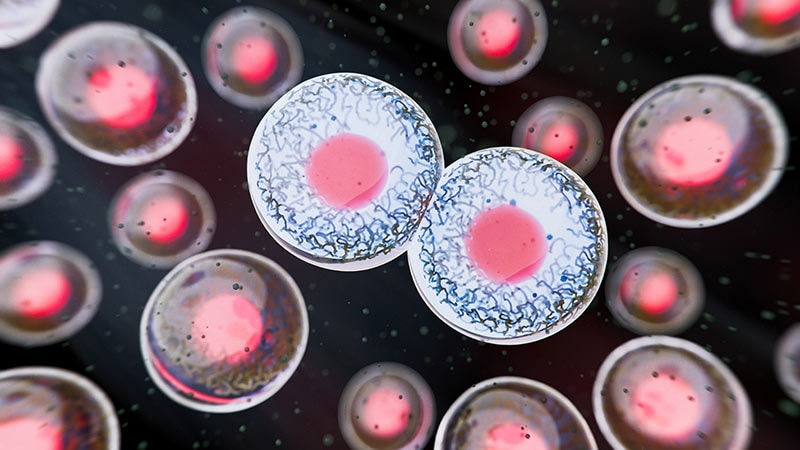Lidl Recalls Chocolate Bars Due to Salmonella Concerns: What U.S. Consumers Need to Know
Published: April 7, 2025
Urgent Recall: “Way To Go” Chocolate Pulled From Shelves
Lidl, the popular grocery chain, has issued a recall for its “Way To Go – Salted Caramel Vollmilchschokolade” (Salted Caramel Milk Chocolate) bars. On April 4, 2025, Ludwig Weinrich GmbH & Co. KG, the manufacturer, initiated the recall after internal testing revealed the presence of salmonella in a specific batch.The affected product is the 180g (6.3 oz) bar with the best-by date of February 19, 2026, and batch code L25083a.
This recall extends to all Lidl stores where the product was sold. Consumers who have purchased this particular chocolate bar are strongly advised not to consume it. Instead, they should return it to any Lidl location for a full refund, even without a receipt. This proactive measure aims to prevent potential health risks associated with salmonella contamination.
While Lidl operates stores primarily in Europe,the situation highlights the interconnectedness of the global food supply chain. Even products not directly sold in the U.S. can offer valuable lessons for American consumers and food safety protocols.
The Dangers of Salmonella: Why This Recall Matters
Salmonella infections, also known as salmonellosis, can lead to a range of gastrointestinal issues. The Centers for Disease Control and Prevention (CDC) estimates that salmonella causes about 1.35 million infections, 26,500 hospitalizations, and 420 deaths in the united States every year. Food is the source for most of these illnesses.
According to “Produktwarnung.eu” (Product Warning EU), the recall was initiated as a precautionary measure to safeguard public health. Symptoms of salmonella poisoning can include:
- Diarrhea
- Fever
- Abdominal cramps
While most healthy adults recover without medical intervention, certain populations are at higher risk of severe complications. These include:
- Young children
- The elderly
- Individuals with weakened immune systems
For these vulnerable groups, salmonella infections can perhaps lead to dehydration, hospitalization, or even life-threatening conditions. if you or someone you know experiences these symptoms after consuming the recalled chocolate, itS crucial to seek medical attention promptly.
What Should You Do If You Have the Recalled Chocolate?
If you have purchased the “Way To Go – Salted Caramel Vollmilchschokolade” with the specified best-by date and batch code,here’s what you should do:
- Do not consume the chocolate. Dispose of it instantly or return it to lidl.
- Return the product to Lidl. You will receive a full refund, even without a receipt.
- Monitor for symptoms. If you have consumed the chocolate and experience any symptoms of salmonella poisoning, seek medical attention.
Lidl has removed the affected product from its shelves to prevent further consumption.They are working with health authorities to ensure the safety of their products and customers.
Broader Implications: Food Safety in the U.S. and Beyond
Even though this specific recall impacts a product sold primarily in Europe, it underscores the critical importance of food safety measures worldwide. The U.S. food supply chain is equally vulnerable to contamination risks, highlighting the role of regulatory agencies such as the Food and Drug Governance (FDA) and the department of Agriculture (USDA) in safeguarding public health.
In the U.S., recalls are a common mechanism for removing potentially perilous products from the market. Such as, in recent years, there have been recalls of romaine lettuce due to E. coli contamination and ground beef due to salmonella.
The Lidl chocolate recall serves as a reminder for consumers to stay informed about food safety alerts and recalls. Here are some resources to help you stay up-to-date:
- FDA Website: The FDA provides details on recalls, safety alerts, and other food safety issues.
- USDA Website: The USDA provides information on recalls related to meat, poultry, and processed egg products.
- CDC Website: the CDC provides information on foodborne illnesses and how to prevent them.
understanding Food Recalls: A Quick Guide
Food recalls are classified into three classes based on the severity of the potential health risk:
| Recall class | Severity | description |
|---|---|---|
| Class I | High | The product could cause serious health problems or death. |
| Class II | Moderate | The product could cause temporary or reversible health problems. |
| Class III | Low | The product is unlikely to cause any health problems. |
The “Way To Go” chocolate recall falls under a Class II recall due to the potential for salmonella exposure to cause moderate health issues.
Looking ahead: Preventing Future Contamination
Preventing future salmonella outbreaks requires a multi-faceted approach involving manufacturers, retailers, and consumers. Key strategies include:
- Enhanced Sanitation Practices: Implementing rigorous cleaning and sanitation protocols at all stages of food production.
- Improved Testing: conducting more frequent and thorough testing of food products for pathogens like salmonella.
- Traceability Systems: Establishing robust traceability systems to quickly identify and isolate contaminated products.
- Consumer Education: educating consumers about safe food handling practices and the importance of staying informed about recalls.
By working together, we can minimize the risk of foodborne illnesses and ensure a safer food supply for everyone.
What is the main challenge in ensuring food safety in today’s global food system,according too Dr. Stone?
Lidl Chocolate Recall: An Interview on Food Safety
Published: April 7, 2025
Archyde News Editor:
Introduction
Hello and welcome. Today, we’re discussing the recent recall of Lidl’s “Way To Go” chocolate bars due to salmonella concerns. To help us understand the implications, we have Dr. Amelia Stone, a leading food safety consultant.
Dr. Stone,thanks for joining us.
Dr. Stone:
Thank you for having me.
Understanding the Recall
Archyde News Editor:
The recall involves a specific batch of chocolate bars. Can you tell us more about the dangers of salmonella and why this recall is crucial, even if the product is primarily sold in Europe?
Dr.Stone:
Certainly. Salmonella can cause salmonellosis, a foodborne illness that can lead to diarrhea, fever, and abdominal cramps. in the U.S. alone, it causes a significant number of illnesses each year.While most people recover,it can be dangerous for the young,elderly,and those with weakened immune systems. This recall, though affecting primarily european markets, reminds us of the global interconnectedness of the food supply chain and the importance of food safety protocols everywhere.
Archyde News editor:
For consumers who may have purchased this chocolate, what steps shoudl they take?
Dr. Stone:
First and foremost, do not consume the chocolate if you have the recalled batch, which is the 180g bar with the best-by date of February 19, 2026, and the batch code L25083a. Return it to any Lidl store for a full refund. Also, monitor for symptoms if you’ve already consumed it and seek medical attention if you experience any signs of illness.
Broader Implications and Preventative Measures
Archyde News Editor:
Beyond this specific recall, what broader implications does this have for food safety in the U.S.?
Dr. Stone:
It underscores the need for robust food safety measures across the board, including thorough sanitation, rigorous testing, and effective traceability systems. Consumers should also be educated on safe food handling practices.
Archyde News Editor:
What specific strategies can manufacturers, retailers and consumers implement to prevent future salmonella outbreaks?
Dr. Stone:
Manufacturers and retailers must prioritize enhanced sanitation practices, conduct more frequent and thorough testing, and establish robust traceability systems. consumers play a crucial role by staying informed about recalls, practicing proper food handling techniques, and reporting any symptoms or concerns. It really takes a collective effort.
Archyde News Editor:
This recall has been classified as Class II. Could you explain these classifications and why this is significant?
Dr. Stone:
Food recalls are classified based on the severity of the potential health risk. Class II recalls, like this one, indicate that the product could cause temporary or reversible health problems.This classification helps consumers and health officials understand the urgency and gravity of the situation.
Archyde News Editor:
Conclusion
Archyde News Editor:
Dr. Stone, thank you for providing valuable insights. One final question: What do you think is the biggest challenge in ensuring food safety in today’s global food system, and how can we collectively address it?
Dr. Stone:
I believe the biggest challenge is maintaining consistently high standards of hygiene and testing across all stages of the food supply chain,especially as it grows globally and becomes more complex. Addressing this will require better international collaboration, greater investment in food safety technologies, and, crucially, educating the public about the significance of food safety. What do you, and our readers, feel is the single most vital thing to do to improve food safety?
Archyde News Editor:
Thank you, Dr. Stone, for your valuable insights. For our audience, remember to stay informed about food recalls by checking the FDA, USDA, and CDC websites. Your health and safety are paramount.








